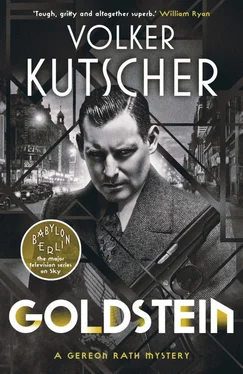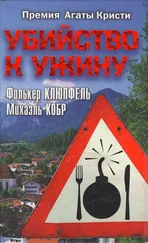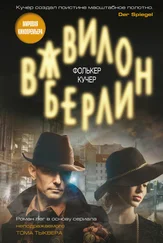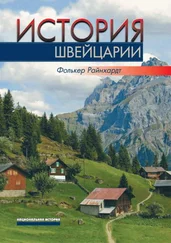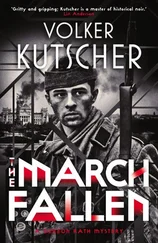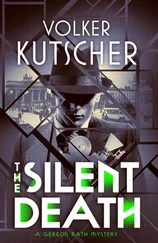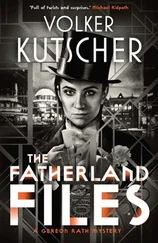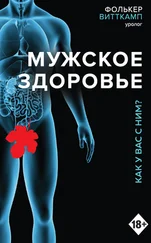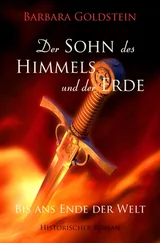‘I’m here to drop the dog off,’ Rath said. ‘I hope that’s OK.’
The caretaker’s wife gazed at Kirie’s fur, which was still halfway dry. ‘Of course,’ she said, taking the lead. Kirie understood, and pitter-pattered into the flat as if it were her second home.
‘Can I ask who died?’
‘A colleague,’ Rath replied.
‘My condolences.’
‘Not necessary. I didn’t know the man.’
Rath said goodbye to Kirie, who had forgotten about him already, and went on his way.
Erika Voss gave him a nod of acknowledgement as he entered. ‘Well, I never,’ she said. ‘If it wasn’t such a sad occasion, I’d say you looked like a new man.’
‘Thank you.’ Rath almost hung the top hat on the stand out of habit, but then remembered that he was here to take Tornow to the funeral. The cadet was the only one heading out to Schönholz Cemetery with him; Gräf, Henning and Czerwinski were on duty.
‘Where’s our trainee got to?’ he asked.
Erika Voss nodded towards the connecting door. ‘He’s in there. Herr Tornow had to take care of a telephone call.’
To Rath’s great surprise on entering, he was confronted by a uniform cop: Tornow himself, reading a newspaper at Gräf’s desk.
‘What’s going on?’ Rath asked. ‘I thought you’d left Uniform?’
Tornow folded the newspaper and stood up. There wasn’t a single crease in his trousers; his buttons gleamed. The man was impeccable.
‘When our colleague was murdered, I was still a cop,’ he said, very solemnly. ‘I think it’s appropriate that I pay my final respects in uniform.’
Rath nodded and, all of a sudden he, too, was in funeral mode.
‘Let’s go, shall we,’ he said, to break the embarrassed silence.
This time he had parked the Buick in the atrium. The rain hammered down on the enormous glass roof.
‘Hopefully it’ll pass,’ Tornow said, and gestured skywards. The men got in.
‘What lousy weather,’ Rath said, switching on the windscreen wipers. ‘Can I drive you back too?’ The cemetery was out of town, in Pankow.
‘Thank you, no,’ Tornow said. ‘That won’t be necessary. I think I’d like to spend a little time with my ex-colleagues. If you don’t mind…’
‘Of course not. As long as Gräf can live with the fact that he’ll have to write up your joint operation on his own. I don’t need you today.’
‘I’ve already spoken to Gräf.’
‘Then that’s settled. How did yesterday go?’
‘Depends on how you look at it. A lot of work for not much result. Most likely Goldstein parked the ambulance where we found it and continued with the S-Bahn or tram. He could be anywhere.’
‘Did no one see anything? Nothing from neighbours, workers at the freight depot?’
‘Just one. A worker who says he was surprised that the ambulance driver wasn’t wearing white, but didn’t know which way Goldstein made his escape, or how.’
‘He’s brazen enough to have taken a taxi.’
‘Gräf was going to check that today with the Taxi Drivers’ Guild.’
‘It’s not much to go on. Even if he finds the taxi driver, it’s unlikely he was dropped off outside the hotel door.’
‘You think he’s hiding out in some hotel?’
‘There are enough flophouses in Berlin if you need to disappear.’
Tornow shrugged. ‘Our witness did mention one other thing. Apparently Goldstein has a rip in his coat. A corner’s missing.’
Rath nodded.
It took a long time for them to reach Pankow. The rain had stopped, but the sky was still grey. A few hundred metres from the main entrance, Rath applied the brakes. Outside the cemetery was chaos. Half of Berlin seemed to have arrived on foot – or bicycles – to pay their final respects, and it wasn’t just police officers, but any number of private citizens. Perhaps there was hope after all. There were days when Rath thought this entire city was conspiring against the police, but today showed there were other people out there too.
He parked and the two men walked to the cemetery entrance. Tornow took his leave before they reached the gate. ‘Thank you for the lift,’ he said. ‘But I have to be with my people now. One last time…’
Rath gazed after him as he mingled with the uniformed officers, greeting colleagues with a handshake. An unhappy occasion to don the uniform for the final time, he thought, and looked around. Cops were everywhere. Only when the hearse rolled into view did the crowd settle. Rows of blue uniforms led the cortège, marching behind Deputy Police Commissioner Weiss and Uniform Commander Heimannsberg. Weiss was dressed entirely in black, Heimannsberg in uniform like his men. A police orchestra played funeral music.
Rath joined the procession when the plainclothes officers began to pass, recognising his colleagues from A Division, among them Gennat and Böhm. A few metres ahead of the homicide investigators was the delegation from Vice, including the division chief himself, as well as several of his inspectors and chief inspectors. Werner Lanke shot Rath an angry glance over his shoulder; evidently Lanke junior had squealed about his recent visit.
It wasn’t just police officers paying their final respects but a huge number of ordinary Berlin citizens; members of the Reichsbanner, the SPD’s paramilitary wing, kept the flag of democracy flying, while the press had also sent its representatives. Emil Kuhfeld had been a Social Democrat and, increasingly, evidence indicated that a Nazi, rather than a Communist, had fired the fatal shot. This revelation made few headlines.
When the throng was gathered by the grave, Magnus Heimannsberg took the floor. The uniform commander wasn’t much of an orator. Next up was Bernhard Weiss, who didn’t need a megaphone to gain the crowd’s attention. His light Berlin brogue could be heard everywhere, and he had no difficulty striking the right note. The pens of press representatives, which had been stationary during Heimannsberg’s speech, suddenly began to take notes.
Weiss briefly mentioned events in Frankfurter Allee, before turning to the dead man. ‘Emil Kuhfeld is not the only man to sacrifice his life in the performance of his duties,’ he said. ‘He is not the first. Nor, I fear, will he be the last. As we stand by his grave, we call upon our fellow countrymen to present a reasonable, decorous, and humanitarian front that regards uniformed police officers as human beings, as opposed to fair game.’
Weiss had used similar words at Alex, in front of CID colleagues, but here, at the grave of the dead officer, they were a hundred times more powerful. All were moved, including those civilians present, and among mourners there was an unspoken feeling of togetherness. It didn’t matter whether uniform cop, CID or ordinary citizen, all felt they were taking a stand against the violence and terror on the streets. Berlin was fed up with Communists and Nazis, and anyone else who confused politics with Wild West shoot-outs. The mood offered hope that Emil Kuhfeld might be the last police officer to be killed for political reasons for some time.
Perhaps, Rath thought, this city wasn’t quite the hopeless case he had taken it for, since arriving in the spring of 1929.
The municipal hospital in Friedrichshain was almost like a small city, made up of impressive brick buildings on the edge of the Volkspark. Andreas Lange opened the door to Male Surgery where, a year and a half ago, SA-Führer Horst Wessel succumbed to gunshot wounds, and subsequently became a Nazi martyr.
With the aid of a porter, he found his room. A uniformed officer waited outside the door with a man in a white coat. Lange didn’t have to show his identification, as the doctor and the police officer recognised him.
Читать дальше
